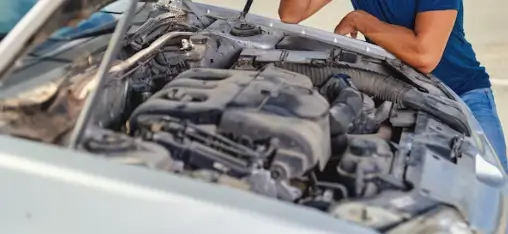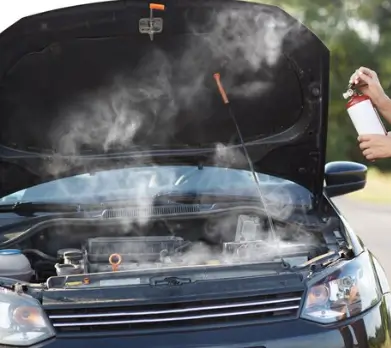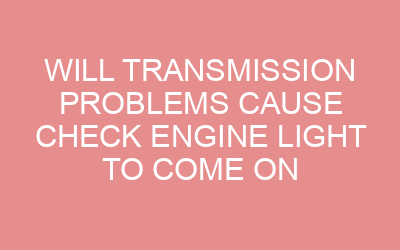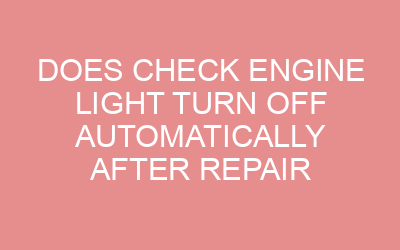Engine overheating can cause serious damage to a vehicle’s performance and should be addressed immediately. Engine overheating is a common issue that vehicle owners may encounter, and it can be a cause for concern.
When an engine becomes too hot, it can lead to various problems, including decreased fuel efficiency, engine damage, and potential breakdowns. Understanding the causes and signs of engine overheating is crucial in order to prevent further damage and ensure the safe operation of the vehicle.
We will explore the truth about engine overheating, dispelling common misconceptions and providing accurate information to help you better understand this issue.
By the end, you will have a comprehensive knowledge of engine overheating and how to prevent it, allowing you to take necessary precautions to keep your vehicle running smoothly.
Understanding Engine Overheating
Engine overheating is a common and serious problem that can potentially lead to costly and extensive damage to your vehicle’s engine. It occurs when the temperature of the engine exceeds its normal operating range, causing it to overheat.
It’s essential to understand the causes and effects of engine overheating to prevent potential breakdowns and ensure the longevity of your vehicle.
Causes Of Engine Overheating
Engine overheating can be caused by various factors, including:
- Low coolant levels: Insufficient coolant can result in inadequate heat dissipation, leading to engine overheating.
- Coolant leaks: When the coolant leaks due to a damaged hose, radiator, or water pump, it reduces the coolant levels and, consequently, the engine’s ability to cool down.
- Failed thermostat: A malfunctioning thermostat can disrupt the engine’s cooling system, resulting in overheating.
- Blocked radiator: Accumulated debris, dirt, or bugs in the radiator can obstruct airflow, preventing proper cooling.
- Faulty water pump: A damaged water pump may not circulate coolant effectively, causing the engine to overheat.

Effects Of Engine Overheating
Engine overheating can lead to severe consequences that should not be ignored. Some of the effects include:
- Engine damage: Excessive heat can cause the engine’s components to expand beyond their limits, leading to warped cylinder heads, blown head gaskets, or even engine seizure.
- Decreased performance: Overheating can hinder the engine’s performance, causing reduced power output and diminished fuel efficiency.
- Increased emissions: An overheating engine can produce higher emissions, contributing to environmental pollution.
- Fluid leaks: Overheating can cause seals and gaskets to become brittle and deteriorate, resulting in coolant or oil leaks.
- Costly repairs: Ignoring engine overheating can lead to extensive and expensive repairs, including engine rebuilds or replacements.
Understanding the causes and effects of engine overheating is crucial in maintaining the health of your vehicle’s engine.
Regular maintenance, such as checking coolant levels, inspecting for leaks, and ensuring proper functioning of components like the thermostat and water pump, can prevent engine overheating and ultimately save you from costly repairs down the road.
Debunking Common Myths
In the world of engine maintenance, there are countless myths and misconceptions that often lead car owners astray. It’s essential to separate fact from fiction to ensure your vehicle stays in optimal condition.
In this article, we will debunk two common myths about engine overheating: “Letting the Engine Cool Down by Running the Heater” and “Pouring Cold Water on a Hot Engine”. Let’s dig deeper into these misconceptions and find out the truth.
Myth 1: Letting The Engine Cool Down By Running The Heater
One prevalent myth about engine overheating is that you can cool down the engine by running the heater in your car. Many people believe that turning on the heater draws heat away from the engine, preventing further damage. However, this is just a myth.
In reality, running the heater in your car doesn’t cool down the engine. The heater draws heat from the engine’s cooling system, passes it through the heater core, and releases it into the cabin. It does not remove heat from the engine itself.
The primary purpose of running the heater when the engine overheats is to help prevent the passenger compartment from becoming unbearably hot. It is not an effective method to cool down the engine.
Continuing to run the engine while it is overheating can cause serious damage to various components, including the cylinder heads, gaskets, and pistons.
Myth 2: Pouring Cold Water On A Hot Engine
Another common myth is that pouring cold water on a hot engine can quickly cool it down. This myth has led many people to reach for a hose or bucket of water in a moment of panic. However, pouring cold water on a hot engine can be extremely harmful.
When you pour cold water directly onto a hot engine, the sudden temperature change can cause the engine metal to contract rapidly. This can result in cracks and warping, leading to costly repairs or even necessitating an engine replacement.
If you find yourself dealing with an overheated engine, it’s crucial to follow the correct procedure. Instead of pouring water on the engine, the best course of action is to turn off the engine and allow it to cool naturally.
Once the engine has cooled down, you can add coolant or water to the radiator while being cautious of its temperature.
Remember, taking appropriate steps to prevent engine overheating is always the best strategy. Regularly checking coolant levels, maintaining proper water pump function, and keeping an eye on the temperature gauge can help ensure your engine stays cool and your car runs smoothly.
Revealing Important Facts
When it comes to engine overheating, it’s crucial to separate fact from fiction. By understanding the truth behind engine overheating, you can effectively prevent potential damage to your vehicle and keep it running smoothly.
Now we will reveal three important facts related to engine overheating that you should know to ensure the longevity of your engine.
Fact 1: Overheating Can Cause Permanent Engine Damage
An overheating engine is not a problem to be taken lightly. In fact, it can lead to permanent damage to your engine if not addressed promptly.
When the engine reaches extremely high temperatures, important components such as the head gasket and piston rings can warp or crack, leading to costly repairs or even the need for an engine replacement.
It’s crucial to understand that overheating is not a minor issue and should never be ignored.
Fact 2: Proper Maintenance Reduces The Risk Of Overheating
Proper vehicle maintenance plays a vital role in preventing engine overheating. By adhering to regular maintenance schedules, you can significantly reduce the risk of your engine reaching dangerous temperatures. Essential maintenance tasks include checking and replacing coolant regularly, ensuring proper functioning of the cooling system, inspecting hoses and belts for any signs of wear and tear, and keeping the radiator free from debris.
By taking these proactive measures, you can keep your engine running cool and prevent overheating.
Fact 3: Engine Overheating Can Be Detected By Warning Signs
Recognizing the warning signs of engine overheating can help you intervene before significant damage occurs.
Some common indicators include an increase in the engine temperature gauge, a persistent burning smell, steam or smoke coming from the engine, coolant leakage, or the engine frequently running hot.
If you notice any of these signs, it’s crucial to address the issue immediately by pulling over safely and allowing the engine to cool down before inspecting the problem. Ignoring warning signs can lead to severe engine damage and costly repairs.
Preventive Measures To Avoid Engine Overheating
Engine overheating can lead to severe damage and costly repairs. To avoid such issues, it’s crucial to implement preventive measures and ensure your engine remains at an optimal operating temperature. Below are some essential steps to prevent engine overheating:
Regular Cooling System Inspections
Regular inspections of your vehicle’s cooling system can help identify any potential issues before they escalate.
This involves checking for leaks, inspecting hoses, belts, and connections, and ensuring that all components are in good working condition.
A professional mechanic or a specialized cooling system service can perform these inspections and provide any necessary repairs or maintenance.
Proper Coolant Levels And Quality
Maintaining proper coolant levels in your engine is vital to prevent overheating. Ensure the coolant reservoir is filled to the recommended level, and top it up if necessary.
Additionally, using high-quality coolant that meets the manufacturer’s specifications is crucial for efficient heat transfer and overall engine performance. Regularly check the coolant’s condition and replace it according to your vehicle’s maintenance schedule.
Checking Radiator And Cooling Fans
The radiator and cooling fans play a key role in dissipating heat from the engine. It’s important to check these components regularly to ensure they are functioning correctly.
Inspect the radiator for any signs of damage or clogging, such as corrosion or debris accumulation.
Additionally, the cooling fans should be regularly inspected to ensure they are spinning freely, without any obstructions. If any issues are detected, it’s essential to address them promptly to prevent engine overheating.
By implementing these preventive measures, you can significantly reduce the risk of engine overheating and keep your vehicle running smoothly.
Regular inspections, maintaining proper coolant levels, and checking the radiator and cooling fans are simple yet effective steps to ensure the longevity and reliability of your engine.
Immediate Actions When Engine Overheats
Engine overheating can be a worrisome situation for any car owner. Ignoring it can lead to serious damage to your vehicle’s engine and potentially leave you stranded on the road. That’s why it’s crucial to know what to do immediately when your engine starts to overheat. By taking these immediate actions, you can prevent further damage and potentially avoid expensive repairs.
Turning Off The Engine And Letting It Cool
If your temperature gauge starts to climb into the danger zone, the first thing you should do is turn off the engine. Continuing to drive with an overheating engine can cause irreparable harm. Once the engine is off, let it cool down before doing anything else. This will give the components a chance to cool off and reduce the risk of burns or injuries.
Checking Coolant Levels And Hose Connections
In some cases, low coolant levels or faulty hose connections can be the cause of engine overheating. After letting the engine cool down, you should check the coolant levels.
Consult your vehicle’s manual to locate the coolant reservoir and make sure it’s filled to the appropriate level. While you’re at it, inspect the hose connections to ensure there are no leaks or blockages. If you notice any issues, consult a professional mechanic for assistance.
By following these immediate actions when your engine overheats, you can minimize the potential damage and get back on the road safely. Remember, a well-maintained cooling system is vital for your car’s performance and longevity, so don’t ignore the warning signs. Stay proactive and keep your engine running smoothly.
Frequently Asked Questions Of Which Of These Statements About Engine Overheating Is True
Is Engine Overheating Dangerous?
Yes, engine overheating can be very dangerous for your vehicle. It can lead to serious damage, such as blown head gaskets, warped cylinder heads, and even engine failure. If your engine is overheating, it’s important to address the issue as soon as possible to prevent further damage or a breakdown on the road.
What Are The Common Causes Of Engine Overheating?
There are several common causes of engine overheating. Some of the main reasons include low coolant levels, a malfunctioning thermostat, a faulty radiator, a broken water pump, or a clogged cooling system.
It’s important to regularly check your coolant levels and have your car inspected if you suspect any issues with overheating.
How Can I Prevent My Engine From Overheating?
To prevent engine overheating, it’s important to follow some maintenance tips. Regularly check and maintain proper coolant levels, ensure your radiator and cooling system are clean, replace old or worn hoses and belts, have routine inspections for any leaks or malfunctions, and avoid driving in extreme temperatures for extended periods.
These steps can help prevent engine overheating and ensure the longevity of your vehicle.
Conclusion
To wrap up, understanding the true statements about engine overheating is crucial for every driver. By debunking common misconceptions, we now know that an overheated engine can lead to severe damage and should never be ignored.
Regular maintenance, proper coolant levels, and addressing any signs of overheating promptly are essential for preserving the health and longevity of your vehicle.
Stay informed, stay cautious, and contribute to a smoother ride on the road.














Leave a Reply